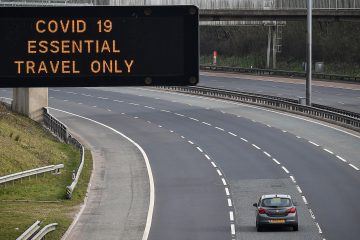Bruno Maçães in Foreign Policy:
 We know from every disaster movie that time is supposed to accelerate, not stand still, during a catastrophe. If asked to draw a scenario months ago, most of us would have imagined moments of chaos and disorder, akin to the profound social chaos in Florence during the plague as described by Boccaccio in his 14th-century work The Decameron, “all respect for the laws of God and man … broken down.”
We know from every disaster movie that time is supposed to accelerate, not stand still, during a catastrophe. If asked to draw a scenario months ago, most of us would have imagined moments of chaos and disorder, akin to the profound social chaos in Florence during the plague as described by Boccaccio in his 14th-century work The Decameron, “all respect for the laws of God and man … broken down.”
Instead, for weeks after the coronavirus pandemic arrived, silence and composure seemed to reign. Economies were stopped in their tracks—deliberately and methodically—and this, too, confounded expectations. For the first time, an economic crisis resulted not from the sudden loss of control over economic processes but from a collective decision to switch off large segments of the economy. On a graph, it seems less appropriate to plot a rapidly nosediving line than one frozen in time.
Pandemics are a recurrent phenomenon in human history. The “great pause” is new.
More here.
